 |
| Corona and bodies: Can you get covid 19 from the bodies of people infected with the virus? |
There have been heartbreaking scenes around the world of corona virus deaths, especially of those whose loved ones have not been included in their last rites.
These scenes are not only raising the fear of death from the corona virus, but also the fear of the bodies of those who died of corona in people's hearts.
So can the COVID 19 virus be transmitted from the bodies of people infected with the corona virus to others? Is it safe to perform his funeral and can his last rites be performed with dignity?
In this article we will answer some such questions.
Can the virus be transmitted from an infected person's body?
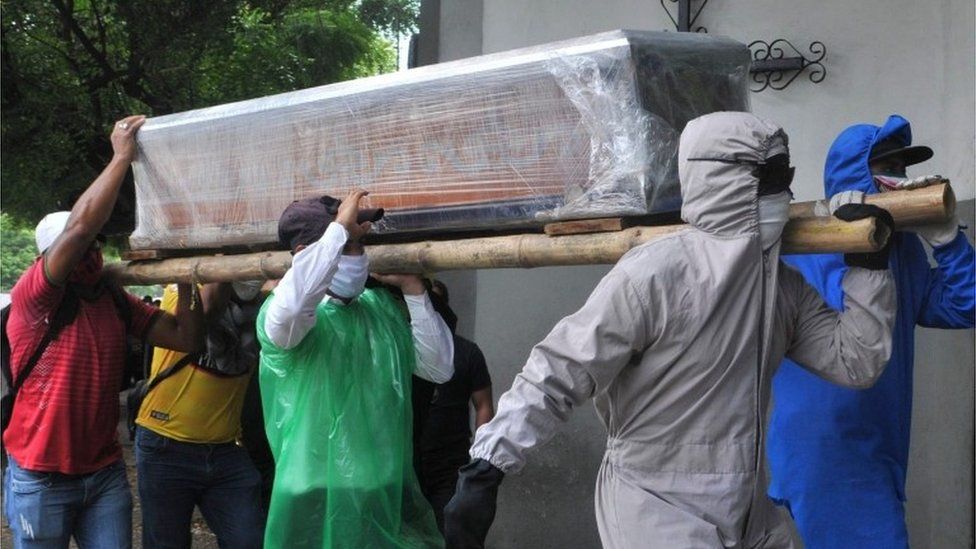 JTN IMAGES
JTN IMAGES
According to the World Health Organization, there is no need to fear the body of a corona patient as long as safety precautions are taken.
Coronavirus is most commonly spread by coughing, sneezing and spitting of human saliva from an infected person. However, the virus can survive for several days at any level.
William Addo Crow, spokesman for the World Health Organization's Pan American Health Organization, told a news conference this month that "to date there has been no evidence of the virus being transmitted from the bodies of infected people."
Can the virus survive in an infected person's body?
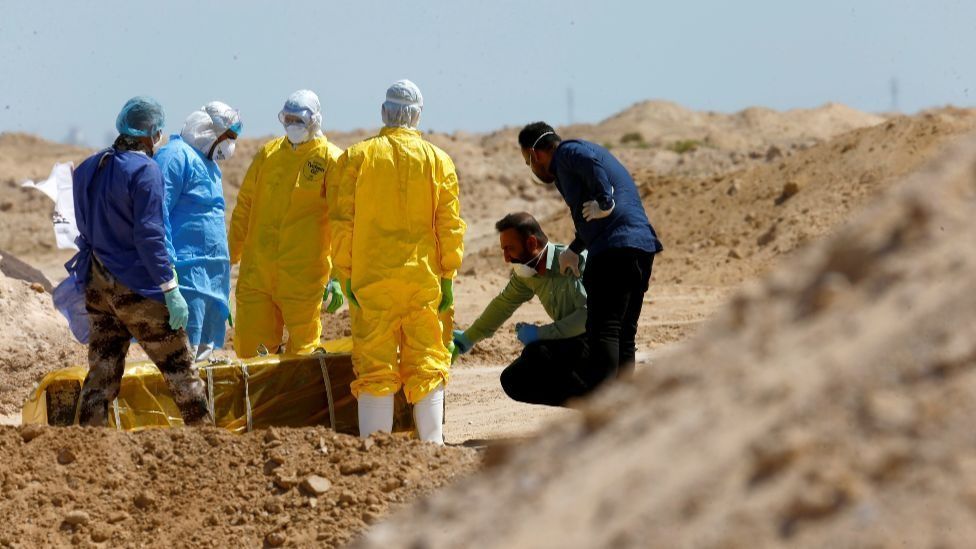 REUTERS
REUTERS
"Just because we say the virus has not been transmitted from an infected person's body does not mean that you should start kissing or loving the corpse of your loved ones," he added.
"We have to control ourselves and take precautions at all costs."
In March, the World Health Organization (WHO) said in a statement that "except for blood-borne diseases such as Ebola, Marburg or cholera, bodies generally do not transmit germs."
The virus in a person's lungs can infect others if the body is not properly cared for only during autopsies of people who have died of influenza.
However, people who die from a respiratory illness may have the virus alive in their lungs and other organs.
And these viruses can be transmitted through medical devices during autopsies or internal cleansing of the body.
Relatives and friends of those killed by the corona virus need to make sure that only properly trained staff are involved in burying or paying last respects to the infected person.
The victim COVID 19 to offer the safe's attending ?
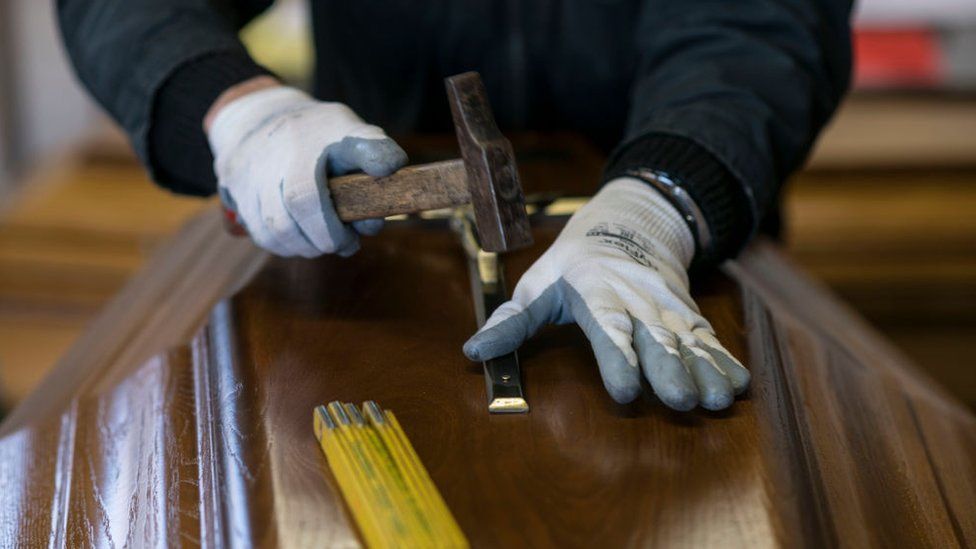 JTN IMAGES
JTN IMAGES
Corona deaths in some parts of the world have caused a crisis in the funeral industry.
And because of instructions to maintain social distance, various countries have banned people from attending funeral prayers for those killed by the corona virus. However, other countries have allowed limited attendance at funerals.
The World Health Organization (WHO) says friends and family of the deceased from Corona can view the body during the funeral, keeping all safety precautions in mind.
Under these precautions, they should not touch or kiss the body, maintain social distance during the funeral, look at the body from a distance and wash their hands thoroughly with soap and water.
People with symptoms of respiratory illness should not attend these funerals, or at least cover their face with a mask so that they do not pass the infection on to others.
Also, children and people over the age of 60 should not touch the body directly. Don't go near corpses of people who already have a condition.
Should the victim's body be buried or cremated?
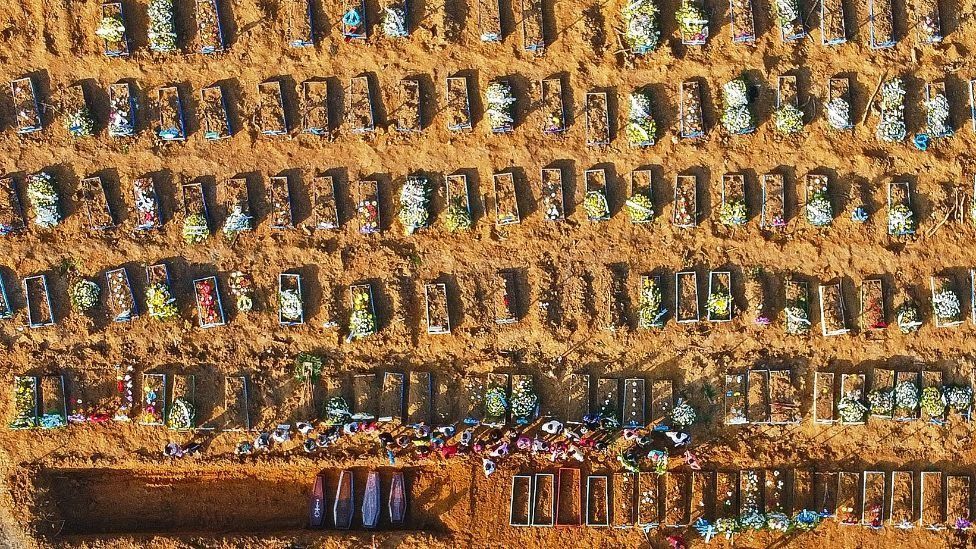 JTN IMAGES
JTN IMAGES
The World Health Organization says it is OK to burn or bury the body.
The World Health Organization added that "it is a common misconception that the bodies of people who have died of a contagious disease should be cremated. This is a social process and a process linked to available resources."
However, those who perform burial or final rites, such as those who unload the dead body at Lahad during the burial, must wear gloves and wash their hands thoroughly after removing the dead body at Lahad, and the gloves are appropriate. Destroy in style.
The World Health Organization (WHO) says there should be no haste in burying the bodies of those killed in Corona.
It is also not necessary to burn the personal belongings of a person who has died from corona, they can be thoroughly treated with gloves, disinfectants containing bleach or 70% alcohol or detergent.
Affected people's clothes can also be washed by putting surf or detergent in hot water in the machine or by soaking in a drum in hot water and washing with the help of a stick.
Taking care of the dignity of the deceased
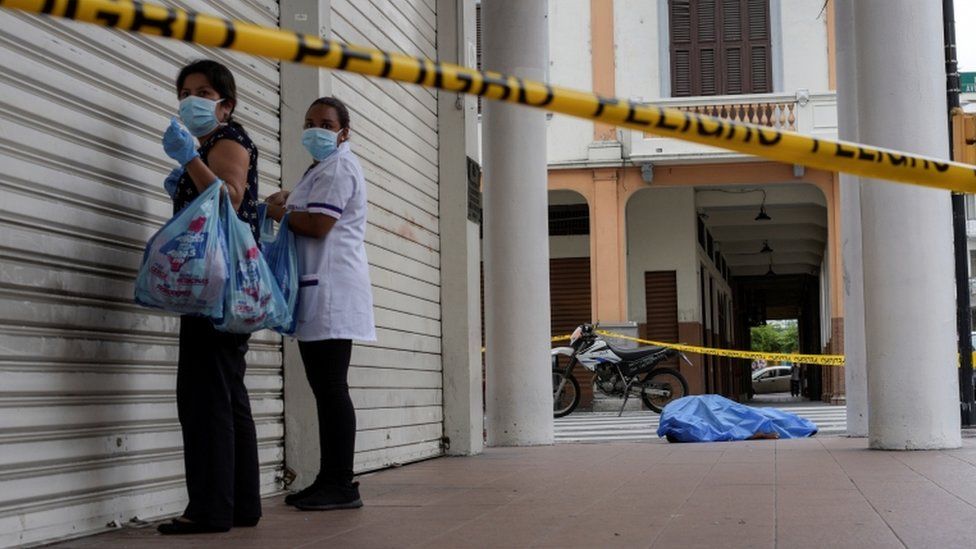 REUTERS
REUTERS
The World Health Organization (WHO) says the social and religious dignity of those killed in Corona must be taken into account, and the dignity and identity of their families must be kept in check.
But as fears of the epidemic spread, it has become increasingly difficult in some parts of the world.
Marvin Tyran, head of Ecuador's Association of Funerals and Funerals, told the BBC's Mando that the situation in the country's Gias province, where the death toll from Corona had exceeded 10,000 in just a few weeks, was "out of control."
Ecuador is the second most affected state in Latin America after Brazil. The health system could not cope with the crisis and the bodies and bodies of the victims were lying on the streets for weeks as the morgue was filled.
Hospitals are transporting the bodies of the victims to air-conditioned warehouses where proper arrangements are not in place to keep them safe.
Even for those of us who are accustomed to seeing corpses, it was very difficult to go to a morgue and identify the corpse because due to lack of proper arrangements, after 24 hours, the corpses were rotting and rotting.
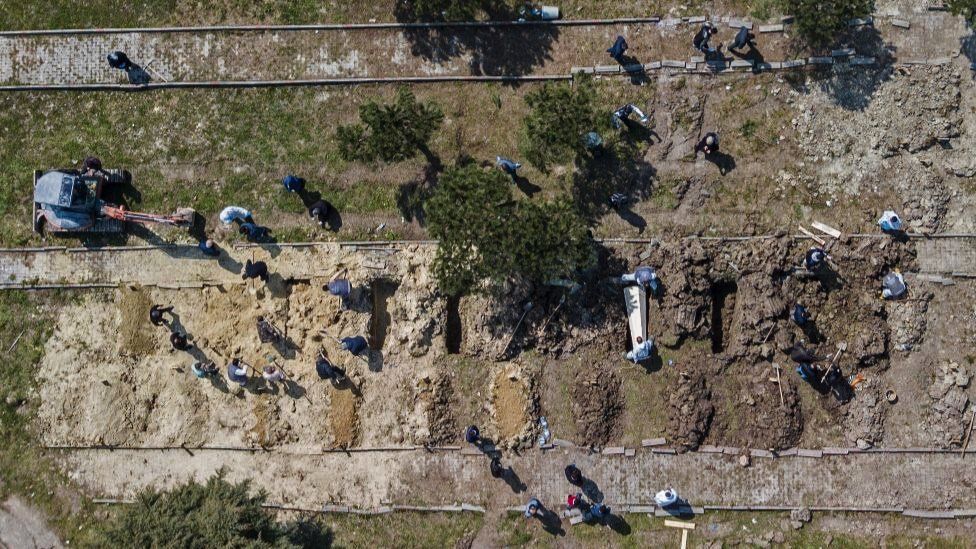 EPA
EPA
Also in the headlines are scenes of mass burials inspired by Corona from New York City, Manas, Brazil, and Istanbul, Turkey.
However, the World Health Organization says the bitter truth is that those who died during the Corona epidemic are not being honorably bid farewell for the last time because their loved ones and loved ones have a chance to mourn their deaths. Can't find
The World Health Organization (WHO) says authorities should try to control the situation by deciding on the basis of each case, taking into account the rights of the deceased's family, the cause of death and the risk of infection.



No comments:
Post a Comment